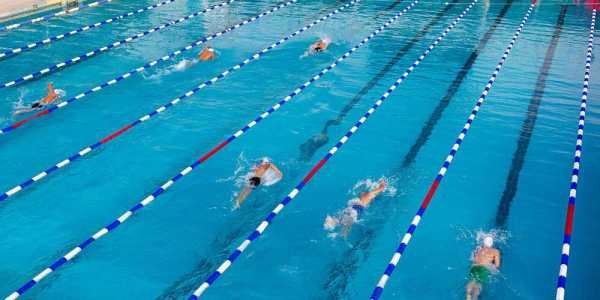The current Olympic Games include a swimming competition known as Olympic swimming. Millions of people all over the world tune in to watch the competitions, making it one of the most watched sports there is.
During the Olympics, swimmers compete in a variety of swimming events, including the freestyle, breaststroke, butterfly, and backstroke, all of which take place in a pool. Open-water swimming competitions and synchronised swimming events are also part of the Olympic programme.
At the Olympics, swimmers from all over the world participate in the hopes of winning a medal for their respective country. Swimming competitions at the Olympics are contested every four years, with the most recent being in 2020.

Contents
An Air Horn Sounds throughout the Olympic Swimming Competition; Why is that Done?
In swimming contests like the Olympics, an air trumpet is used to announce the start of the race. When all swimmers are ready to begin the race, the starter or referee will blow the air horn.
The air horn is utilised because it is audible over the noise of the pool and the crowd, and can be heard by every swimmer and official no matter how far away they are. The air horn signals the start of the race and ensures that all swimmers are given a fair chance to participate.
Read Also:
- Jordan Chiles has Unusual off Day for US Gymnasts
- What is the Highest Score in Olympic Gymnastics?
- Shacarri Richardson and Her now Uncertain Path to the Olympics
It Seems Like the Air Horn Goes off a Lot During the Olympic Swim Competition.
In Olympic swimming and other forms of competitive swimming, the air horn is normally sounded once at the beginning of each race. A starter or referee blows an air horn once all swimmers have been checked and are ready to begin the race.
At the sound of the air horn, the swimmers are given permission to enter the pool and the race will officially begin.
All races, whether they be solo events like the 50-meter freestyle or team events like the 4×100-meter freestyle relay, are signalled by an air horn. After the air horn has been sounded to signal the beginning of one race, it is often not used again until the start of the next race.
Can You Identify These Horns at the Olympic Swimming Competition?
You might hear air horns at the start of races at the Olympic swimming competition. If you want to make a loud, distinct noise, all you need is an air horn, which is a small, handheld gadget.
Sporting events, concerts, and other public gatherings frequently employ air horns to announce the beginning and finish of events, as well as to alert attendees that an emergency has occurred.
A starter or referee, who is responsible for making sure all swimmers are ready to begin the race before the air horn is sounded, is usually in charge of the proceedings at an Olympic swimming competition. The air horn signals the start of the race and ensures that all swimmers are given a fair chance to participate.
Read Also:
- How do You Score in Curling in the Olympics
- What is the Figure Skating Gala?
- Olympic Bobsledder Who Killed Himself Likely Had C.T.E.
Summary
In the Olympic Games and other swimming competitions, the beginning of a race is signalled by blowing an air horn. The start of the race is signalled by activating these handheld devices, which emit a loud, distinctive sound.
When all swimmers are ready to begin the race, the starter or referee will blow the air horn. An air horn is used to signal the beginning of the race so that all participants are given the same head start.
A starting block is a crucial piece of equipment in swimming events because it ensures that every swimmer gets a fair shot at the gun and can swim to the best of their abilities. Air horns are normally only sounded once at the beginning of a race and then not again until the start of the next race.
There wouldn’t be a swimming competition without it, and it helps each race get off to a good start.




